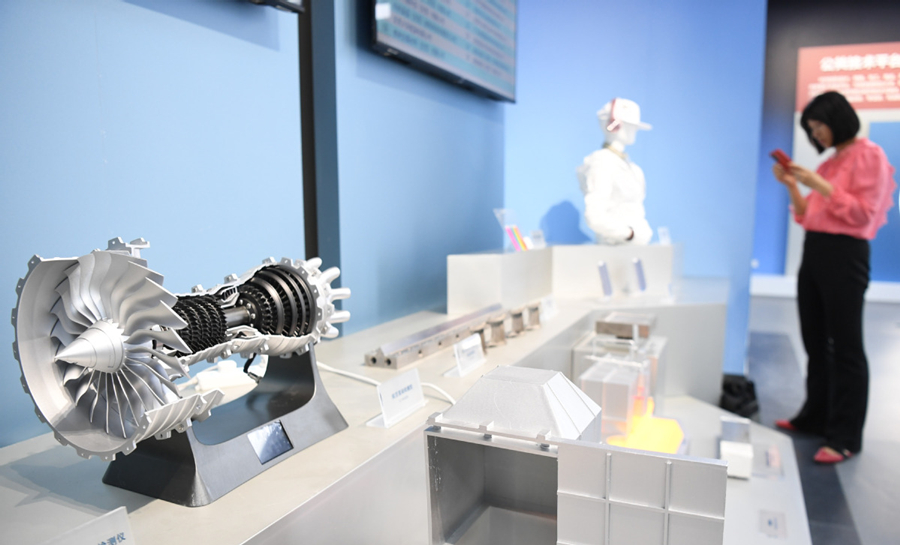Rebalancing economy with science and tech

Models of products made with new materials are on display at Songshan Lake Materials Laboratory in Dongguan. [Photo/Xinhua]
The country would also refine the policy on insurance compensation for newly developed major technological equipment, and continue to launch trials offering insurance subsidies for initial applications of new materials, it said.
Some other measures include granting an extra tax deduction of 75 percent on enterprises' research and development costs, and raising this further to 100 percent for manufacturing enterprises, thus using preferential tax treatment to encourage greater investment in R&D.
A survey-based report published by Standard Chartered Bank in July indicated that manufacturers operating in the GBA showed a recovery, while the local government is expected to continually preserve jobs and support enterprises.
Guangdong province has deployed supportive measures to cut taxes and reduce fees, including "anti-epidemic" initiatives like delaying social insurance fee payments, benefiting over 3 million enterprises to the tune of 197 billion yuan, the survey indicated.
Many such social insurance payment reductions or relief windows have been extended to at least the end of this year. The province said it will continue to support financing for small and medium-sized enterprises, promote vocational training and assist job seekers.
In Guangdong, the provincial finance department has budgeted 10 billion yuan since 2018 to develop key technologies and industries in nine fields, including intelligent agricultural equipment, network and information security, and new materials, Yao said.
"Some key technologies and products now have independent intellectual property rights, which break the monopoly of foreign companies."
China has reached the goal of eradicating extreme poverty in rural areas, the central government announced earlier this year. During the 14th Five-Year Plan period, one of the country's objectives is to rebalance the economy toward a service-based, consumption-led growth model.
The country will also emphasize on technology, innovation and a move toward the decarbonization of the economy, said analysts.
"Focusing additional fiscal efforts on social spending and green investment rather than traditional infrastructure investment would not only help secure the recovery and bolster short-term demand, but also contribute to the intended medium-term rebalancing of China's economy," said Sebastian Eckardt, the World Bank's lead economist for China.
























